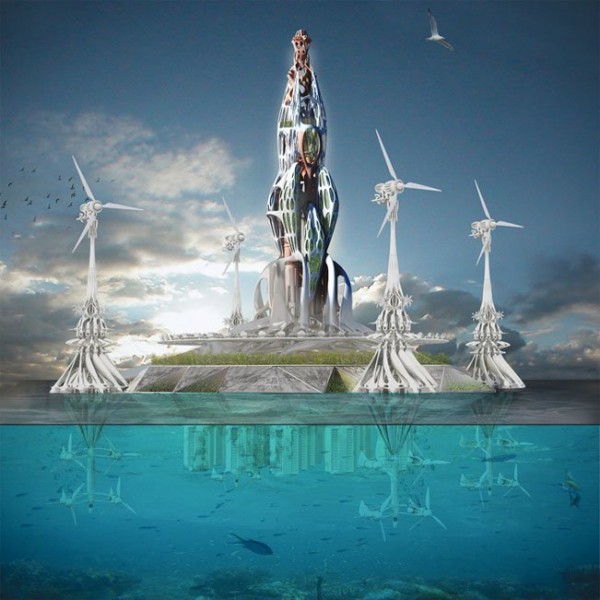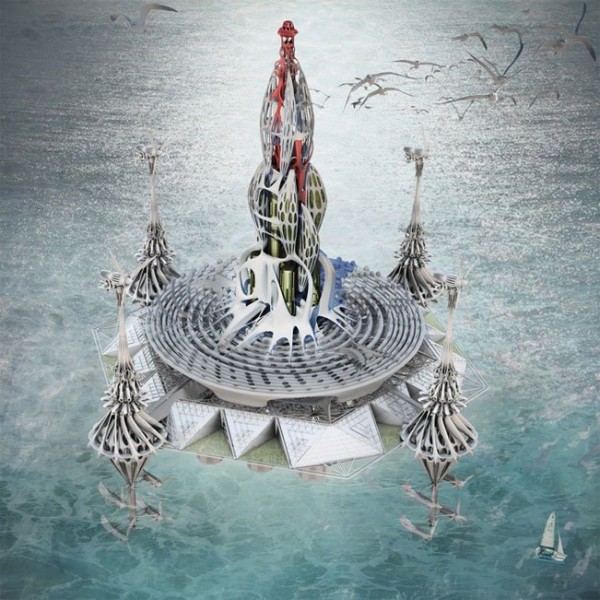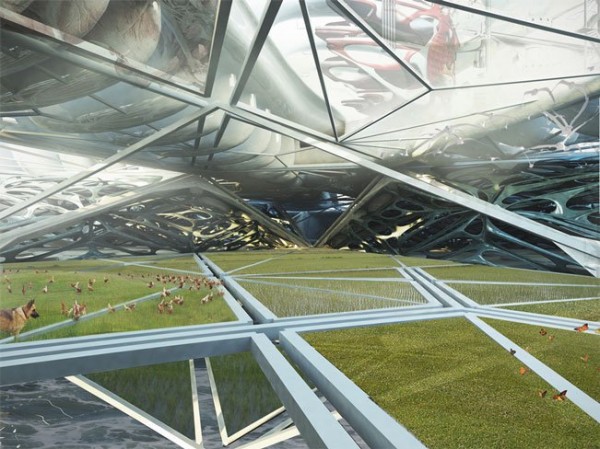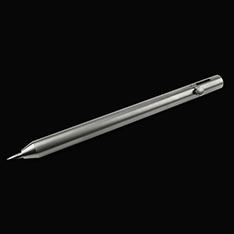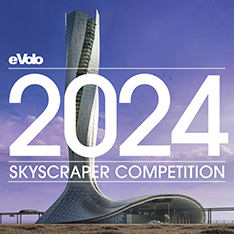Floating Permaculture is a polemic utopian statement by Dietmar Koering, which explores creating a system in the North Sea to connect renewable energy, rainwater capture, natural ways of cleaning grey water, organic food production and re-circulating hydroponics.
The research is widely based on the argument that, in the past, fatal errors were made when mankind developed its “permanent culture”. Humans act as parasites, taking resources from the environment – in many cases in much larger amounts than nature and the environment can stand. Moreover, the different areas and processes required to gain the essentials to support human life are not systematically or synergistically combined. Energy is converted into food with the aid of mechanized agriculture. First: frugality must be paramount. Second: better and more efficient systems need to be developed to source the basics for human needs.
Floating Permaculture presents a polemic utopian statement: how to create a system that interlinks systems without exploitation. Rapid urbanisation and overpopulations have eaten away at traditional farmland. This proposal presents floating permaculture as a crucial re-action to social expansion, while acknowledging that present-day cities are vulnerable systems. The shallow waters of the epi-continental North Sea are an ideal location for permaculture. The cybernetic process is embodied in a closed feedback loop connecting energy and food production, fused with 1960s utopian ideas of metabolism and adapted to today’s society.
This project uses the term “permaculture” to indicate a rhizometric system which theoretically connects to form a sustainable system. A system which interlinks renewable energy, rainwater capture, natural ways of cleaning grey water, organic food production and re-circulating hydroponics. Permacultural systems were – and still are – used by the Aztecs in the Valley of Mexico. The so called “Chinampa’s” are small floating islands dedicated to food production. These islands were born out of the need to provide food for the larger cities; today, with a modern society to sustain, we are in a similar situation.

